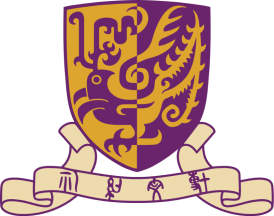Faculty

Ying-yi HONG
Choh-Ming Li Professor of Psychology
Rm 356, Sino Building
yyhong@cuhk.edu.hk
3943 4382
2603 5019
Brief Introduction
After earning her Bachelor of Social Science in Psychology from The Chinese University of Hong Kong, Ying-yi pursued graduate studies at Columbia University. She has held academic positions at the Hong Kong University of Science and Technology, the University of Illinois at Urbana-Champaign, and Nanyang Technological University in Singapore before returning to her alma mater to teach. Her research employs experimental social psychology to explore identity and intergroup relations during major global and local events, such as Hong Kong’s 1997 sovereignty handover, Hurricane Katrina (2005), the 2011 Japan earthquake and tsunami, and social movements in Hong Kong in 2015 and 2019. Since the COVID-19 pandemic began, she has expanded her focus to include related research. Ying-yi integrates cutting-edge methods from social psychology, behavioral economics, neuroscience, and genetics to deepen understanding of human behavior amid social and environmental change.
Reflecting her global perspective, Ying-yi has edited over ten books, including The Oxford Handbook of Multicultural Identity, which received the 2015 Ursula Gielen Global Psychology Book Award. She has published more than 250 journal articles and book chapters, with her work widely cited across psychology, business, and education. Her pioneering contributions have earned her numerous honors, such as the Otto Klineberg Intercultural and International Relations Award (2001), the International Society for Self and Identity Outstanding Early Career Award (2004), and the Nanyang Award for Research Excellence (2013). Ying-yi is a Fellow of the Association for Psychological Science, the Asian Association of Social Psychology, and Stanford University’s Center for Advanced Study in the Behavioral Sciences. Her recent accolades include the Outstanding Contributions to Cultural Psychology Award (2020) and the Senior Research Fellow Scheme award from Hong Kong’s Research Grant Council (2021/22). She currently serves on the Board of Directors for the Society for Personality and Social Psychology (2025–2028), edits the Handbook of Advances in Culture and Psychology series (Oxford University Press), and is Editor-in-Chief of the Journal of Pacific Rim Psychology.
Research Interests
Professor Hong’s primary research interests encompass culture and cognition, identity, intergroup relations, decision making, and political psychology. Committed to interdisciplinary inquiry, she integrates social psychology, behavioral economics, neuroscience, and genetics to investigate identity and intergroup dynamics. Through this integration, she aims to advance understanding of how culture, identity, and human biology co-evolve, offering new insights into human development amid globalization and multicultural interactions.
Publications
- Multicultural Processes
Core readings:
- Hong, Y., & Cheon, B. K. (2017). How does culture matter in the face of globalization? Perspectives on Psychological Science, 12(5), 810–823. https://doi.org/10.1177/1745691617700496
- Hong, Y., Zhan, S., Morris, M. W., & Benet-Martínez, V. (2016). Multicultural identity processes. Current Opinion in Psychology, 8, 49–53. https://doi.org/10.1016/j.copsyc.2015.09.020
- Hong, Y., & Khei, M. (2014). Dynamic multiculturalism: The interplay of socio-cognitive, neural, and genetic mechanisms. In V. Benet-Martínez & Y. Hong (Eds.), The Oxford handbook of multicultural identity(pp. 11–34). Oxford University Press. https://doi.org/10.1093/oxfordhb/9780199796694.013.026
- Hong, Y., Morris, M. W., Chiu, C.-y., & Benet-Martínez, V. (2000). Multicultural minds: A dynamic constructivist approach to culture and cognition. American Psychologist, 55(7), 709–720. https://doi.org/10.1037/0003-066X.55.7.709
- Hong Kong Identity
Core readings:
- Hong, Y., Chan, H.-W., & Chiu, C. P.-Y. (2025). Understanding social divides in the Hong Kong 2019 unrest: A combination of person- and variable-centred approaches. European Journal of Social Psychology. Advance online publication. https://doi.org/10.1002/ejsp.70001
- Osnos, E. (2019, September 2). China’s Hong Kong dilemma. The New Yorker. https://www.newyorker.com/magazine/2019/09/02/chinas-hong-kong-dilemma
- Zhang, J., Yang, Y., & Hong, Y. (2020). Sleep deprivation undermines the link between identity and intergroup bias. Sleep, 43(2), zsz213, https://doi.org/10.1093/sleep/zsz213
- Cheon, B. K., & Hong, Y. (2020). Aversive response towards culture fusion is moderated by the source of foreign cultural inflow. Journal of Cross-Cultural Psychology, 51(5), 370-386. https://doi.org/10.1177/0022022120919994
- Conspiracy Theories
Core readings:
- Chan, H. W., Wang, X., Tam, K. P., Hong, Y., & Huang, B. (2024). Hotter weather, less of a hoax? Testing the longitudinal association between experience of temperature anomalies and belief in climate change conspiracy theories. Journal of Environmental Psychology, 98, 102409. https://doi.org/10.1016/j.jenvp.2024.102409
- Chan, H. W., Tam, K. P., & Hong, Y. (2023). Does belief in climate change conspiracy theories predict everyday life pro-environmental behaviors? Testing the longitudinal relationship in China and the US. Journal of Environmental Psychology, 87, 101980. https://doi.org/10.1016/j.jenvp.2023.101980
- Hong, Y., Chan, H-W., & Douglas, K. M. (2021). Conspiracy theories about infectious diseases: An introduction. Journal of Pacific Rim Psychology, 15, 1-8. https://doi.org/10.1177/18344909211057657
- Wang, X., Zuo, S-J., Chan, H-W., Chiu, C. P-Y., & Hong, Y. (2021). COVID-19-related conspiracy theories in China: The role of secure versus defensive in-group positivity and responsibility attributions. Journal of Pacific Rim Psychology, 15, 1-13. https://doi.org/10.1177/18344909211034928
- COVID-19 Psychology
Core readings:
- Chan, H.-W., Wang, X., Zuo, S.-J., Chiu, C. P.-Y., Liu, L., Yiu, D. W., & Hong, Y. (2021). War against COVID‐19: How is national identification linked with the adoption of disease‐preventive behaviors in China and the United States? Political Psychology, 42(5), 767-793. https://doi.org/10.1111/pops.12752
- Lau, V. W., Tse, D. C., Bligh, M. C., Hong, Y., Kakarika, M., Chan, H. W., & Chiu, C. P. (2022). Not “My” crisis: Social identity and followers’ crisis responses to COVID‐19. Analyses of Social Issues and Public Policy, 22(2), 506-535. https://doi.org/10.1111/asap.12316
- Li, K. K., & Hong, Y. (2023). Confidence in China’s political system was linked to perception of Covid infection risk, Covid health threat, and attitudes toward dynamic Zero-Covid policy. Judgment and Decision Making, 18, e36. https://doi.org/10.1017/jdm.2023.34
- Zuo, S., Wang, F., Hong, Y., Chan, H.-W., Chiu, C. P.-Y., & Wang, X. (2024). Ecological introspection resulting from the COVID-19 pandemic: The threat perception of the pandemic was positively related to pro-environmental behaviors. The Journal of Positive Psychology, 19(3), 457–470. https://doi.org/10.1080/17439760.2023.2190923




